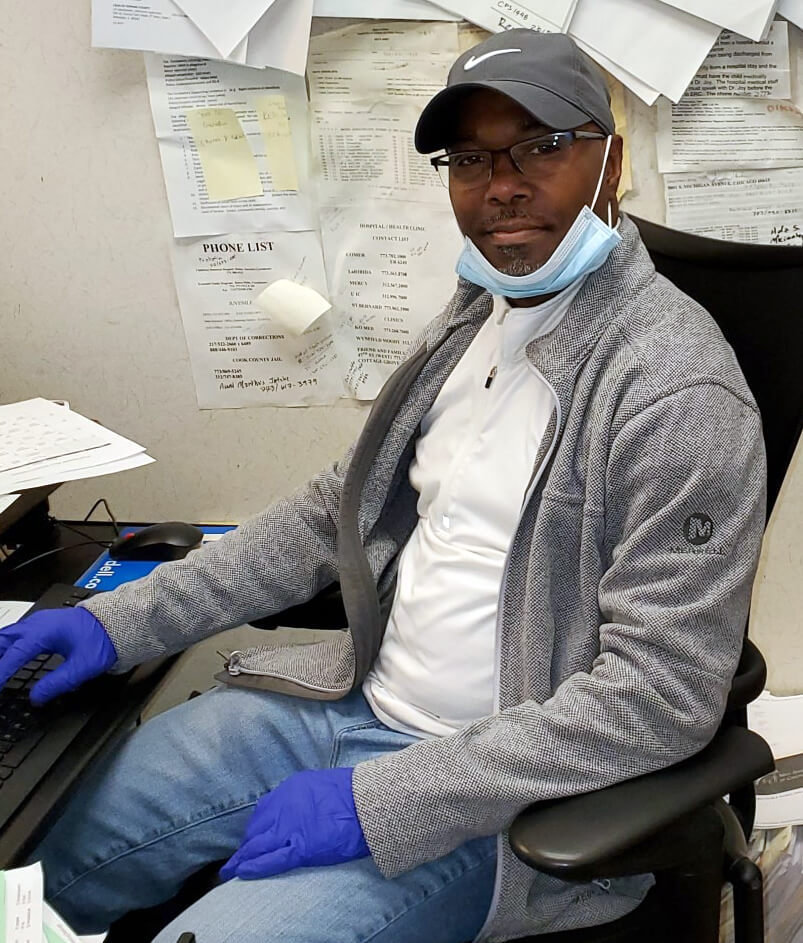
While the shortage of personal protective equipment (PPE) has left health industry workers around the world desperate and vulnerable to the spread of COVID-19, other workers who are also deemed “essential” are also at risk as they continue to go out and serve their local communities.
AFSCME Local 2081 (Council 31) president Stephen Mittons is a child protection investigator with the state Department of Children and Family Services (DCFS) in Illinois. His agency is tasked with investigating allegations of abuse and neglect of children through home visits, a particularly risky procedure during a time when cases of coronavirus are surging.
Mittons, who is still conducting home visits, said he was given three masks and a handful of gloves in late March – nearly two months after the first coronavirus infection was confirmed in the United States – to protect himself from being exposed. Before then, he and his colleagues were using protective gear that they had purchased themselves or made at home.
As a member of AFSCME Council 31’s statewide labor management committee, Mittons and his fellow committee members pressed for adequate personal protective equipment (PPE) for workers in the field, and additional protections for the few DCFS staff who still have to report to local offices. In early April, his office received a new shipment of PPE and it’s being distributed to the field.
“We’ve been designated as ‘essential’ staff but only have access to equipment as it becomes available,” Mittons said. “The bulk of resources is reserved for health care and first responders. We are pushing for DCFS field staff to be considered first responders. Without PPE, we could possibly go home and infect our families or bring the infection to homes we investigate.”
The use of PPE is vital for jobs that require close contact with the public because the potential to be exposed to the virus is much higher in close quarters.
"When I visit a home, I’m in direct contact with the family,” Mittons said. “Not only are we asking questions to make sure the children are safe, we’re also checking the conditions of the home. For example, we might look in the refrigerator or the pantry to see what foods are available. If there are elderly people in the home, we check on their safety, too. We’re essentially very exposed.”
Despite his safety concerns, Stephen Mittons, who just marked his 25th anniversary with DCFS, remains dedicated to his work.
“Sometimes you end up giving more thought and consideration to the safety of these children than you do for yourself or your family. This is the work that we do. This how the AFSCME family responds in crisis,” he said.
Too many public service workers around the country – many of them AFSCME members – are being forced to put themselves and their families at risk by going to work without the masks, gloves, goggles, respirators and other PPE.
AFSCME is continuing its efforts to secure more PPE from the federal government, including pushing President Donald Trump to exercise his full authority under the 1950 Defense Production Act and order U.S. industry to immediately accelerate the manufacture and distribution of life-saving protective gear.